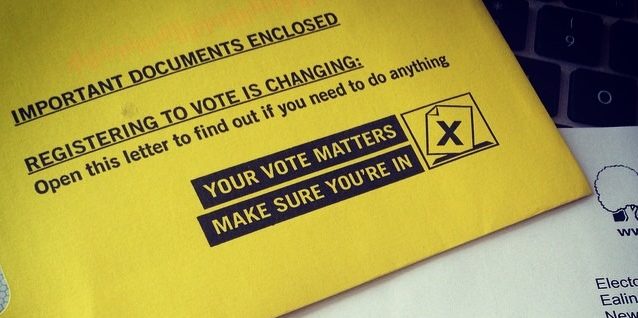Lecturers encourage students to register to vote in class
Lecturers have been encouraging students to register to vote by allocating five minutes of class time to fill out registration forms, according to recent reports.
This effort has been made ahead of the November 26th registration deadline. The campaign is supported by the University College Union (UCU), and has been exercised across the country.
In the effort, the UCU has collaborated with the NUS and is supported by the #MakeTheVoterPledge campaign which is working to ensure universities fulfil their duty to encourage students to register.
The action follows concerns about the date of the election – the 12th December – impacting the student vote due to many students being between home and university at that time of year.
Following the introduction of the Higher Education and Research Act of 2017, universities and colleges in England have a responsibility to enable the electoral registration of students as a prerequisite to registration with the Office for Students (OfS).
While 96% of over 65’s are registered to vote, one third of young people are not.
On social media, accusations of “brainwashing” have been aimed at the campaign.
UCU General Secretary Jo Grady stated: “It’s great that some lecturers have taken the initiative and devoted a few minutes of their lesson to remind students how to get registered, and we would encourage others who can do the same.”
“It’s really important that students’ voices are heard in the upcoming general election.”
I see it as being a vital part of their education
– Dan Elphick
When speaking about the class time he gave to his students to register, Dan Elphick, a music lecturer at Royal Holloway, University of London, stated: “I see it as being a vital part of their education.”
“I explained a bit about the rules, about who can vote. Their reaction was positive”. His initiative was replicated by other staff following the positive impact.
Following the 2017 election, when key seats were swung by organised student vote campaigns, such as Canterbury, which saw a 20% swing towards Labour, all parties will be watching this election closely and hoping to maximise their voter base.
A poll of students by YouthSight on behalf of the Higher Education Policy Institute (HEPI) suggests that one of the key issues for students in this general election will be Brexit, with 74% of young people believing the UK was wrong to leave the EU, 70% wanting a final say in another referendum and three quarters claiming they would vote to remain.
Brexit has also caused a 28% spike in students choosing to study political courses in recent years.
Nick Hillman, director of the HEPI said: “The student vote may or may not make a big difference at this election. It all depends on how close the overall result is.
“At this Brexit-focused election, candidates’ views towards the EU could be a bigger factor when students decide how to vote.”

Comments